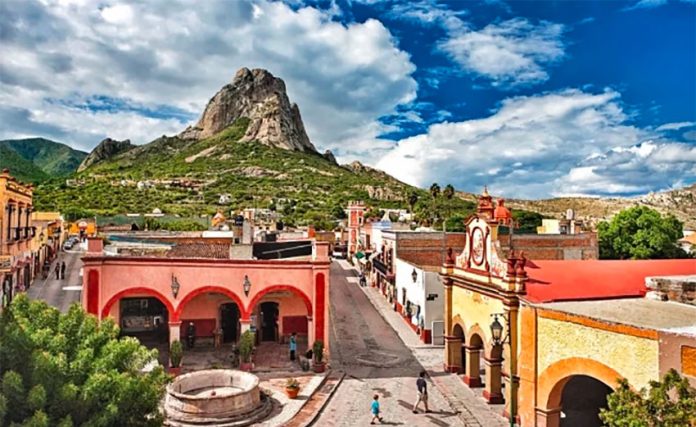The National Autonomous University (UNAM) is pushing for the creation of a third Mexican UNESCO global geopark in Querétaro.
The park would encompass the Peña de Bernal, one of the world’s largest monoliths, as well as the area known as the Sacred Triangle of Querétaro, which includes the Zamorano Volcano and the Frontón mountain.
Gerardo Aguirre Díaz, a researcher at UNAM’s Center of Geosciences and coordinator of the team promoting the creation of the new park, told the newspaper El Universal that a proposal has been submitted to UNESCO, the United Nations Educational, Scientific and Cultural Organization, and could be ratified in April or May next year.
The Querétaro reserve would become Mexico’s third global geopark after the Comarca Minera in Hidalgo and the Mixteca Alta in Oaxaca, which were designated by UNESCO in 2017.
The organization defines global geoparks as “single, unified geographical areas where sites and landscapes of international geological significance are managed with a holistic concept of protection, education and sustainable development.”
There are currently 147 UNESCO-recognized geoparks in 41 countries.
Aguirre said the designation of a geopark in Querétaro would recognize the traditions of the Otomí and Chichimeca peoples as well as the geological characteristics of the Peña de Bernal monolith and its biodiversity.
The 433-meter-high monolith, believed to have formed during the Jurassic period, is at the junction of three geologically important features of Mexican topography: the Sierra Madre Occidental, the Sierra Madre Oriental and the Trans-Mexican Volcanic Belt.
The rock has been on UNESCO’s intangible cultural heritage list since 2009.
Aguirre, who has been researching the geology of Queretaro for 30 years, said that one of UNAM’s aims in seeking the global geopark designation is for local residents to place greater value on the area in which they live and protect the environment.
He also said that a geopark classification would benefit residents economically, explaining that there will be opportunities for people to open new hotels and restaurants, work as guides and sell their arts and crafts.
“We hope that quality tourism, which promotes the protection of nature, will gradually increase and replace mass tourism that damages the environment,” Aguirre said.
Source: El Universal (sp)
